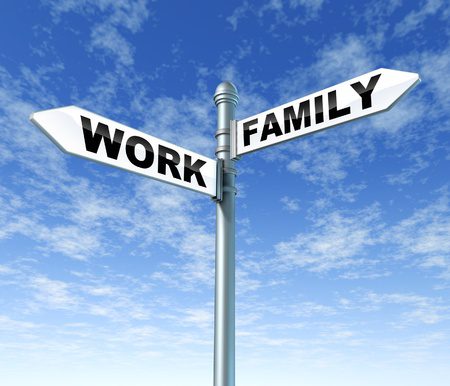Life is starting to get back to normal, although we’re still not sure what normal will mean for the immediate future. It was almost a year ago now that Anne underwent the fateful surgery that revealed her cancer. She had surgery again for treatment in July. We haven’t put any updates on our family blog in a few months now – sorry! – but she’s doing fairly well. Recent scans haven’t revealed any visible disease (we know she has microscopic tumors). She does have daily bouts of intense abdominal pain, possibly as a result of scar tissue or nerve damage from the surgery, and it seems like for now we’re going to have to manage that as an ongoing thing rather than fix it quickly. We’re starting to figure out what daily life might look like going forward.
This brings challenges – how much help will she need on an ongoing basis? How will we make sure the kids are being taken care of well? And at the center for me is something that I’ve frankly always wrestled with (with Anne’s enormous help and support), and would no doubt be wrestling with even if Anne were perfectly healthy: what is the right balance between my vocation as a pastor and my work at home for my family?
A work life balance
In some ways, it’s easier in a crisis – taking care of my family comes first, and everything else comes a distant second. But what about when the crisis has passed?
I know this is in some ways a universal struggle and question. Pop culture has some answers, but I don’t always find them helpful. On the one hand, we have an economic system set up that values professional work far above work at home. But on the other hand, the explicit message we hear from all sides is “family first.” You see it in slogans like, “No one on their deathbed ever said, ‘I wish I’d spent more time at the office.'” The implication is that professional work is necessary to earn a paycheck, but its value pales in comparison to quality time spent with family.
But I think that undervalues what occupational work can be. The work of our occupation can be the primary place where we exercise charity in the world. I’m fortunate enough to be in a profession where this is clearly the case; but the reality is that almost any job can be seen as a spiritual vocation. This is one of the lynchpin concepts in New Church doctrine.
Charity itself is dealing fairly and faithfully in whatever position, business or work one is engaged in, because everything a person so does is of use to the community; and use is good; and good, leaving persons out of account, is the neighbor. For example…, if a judge bases his decisions on justice and the law, and is not influenced by bribes, friendship or nepotism, he takes thought for the community in general and the individual in particular…. If a business man acts honestly and not fraudulently, he takes thought for the neighbor with whom he has dealings. The same is true of a workman or craftsman, if he does his work properly and honestly, without pretense or deceit. The same is true of other occupations, such as ship-captains and sailors, or farmers and servants. (True Christian Religion §422)
Charity is found primarily, not in the occasional volunteer work or monetary donations we may make, but in our daily work. This is true whether our “daily work” involves a paid job, taking care of our kids, or just being a positive presence for people who are taking care of us. In our daily work we have the opportunity (which we don’t always take) to look beyond ourselves and even beyond our own families to look to the needs of society as a whole.
Is it selfish to put my family first?
It is almost a secular heresy to suggest that sometimes you should not put your family first. But there are passages from Scripture that suggest this very thing, in shockingly strong language:
[Jesus said,] “If anyone comes to Me and does not hate his father and mother, wife and children, brothers and sisters, yes, and his own life also, he cannot be My disciple.” (Luke 14:26)
Do we actually have to hate our families? I think it’s clear from other passages – e.g. Jesus affirming the commandment to honor father and mother – that this isn’t the whole picture. But the point is this: we are supposed to prioritize serving the Lord above all else, even our own family.
And there are passages from the Doctrine of the New Church that seem to suggest that vocational work serves the kingdom of God in a way that household work may not always do:
But marriage love, and the love for children, together with their duties and the fulfillment of these duties, do not create love towards the neighbor, as does the fulfillment of the duties of office. For what is called parental affection exists just as much with the wicked as the good, and is sometimes stronger in the case of the wicked; it also exists with animals and birds, which are incapable of the development of charity. (True Christian Religion §431)
When we’re setting our priorities for a work / family balance, it clearly is not enough to say, “My family is all that matters.” There has to be a conscious decision to serve the broader community in some way.
Good parenting, bad parenting
That’s a hard teaching, and it raises all sorts of questions: what about stay-at-home parents? What about unemployed people? What about sick or disabled people? (And I want to say here that I realize that my struggle to find a work / family balance is one of incredible privilege. That I have a job at all, and am able to modify the number of hours I dedicate to that work, is a rare opportunity.) I think the rest of that passage helps answer those questions:
On the particular subject of parents’ duties to their children, there is an intrinsic difference between those of the charitable and the uncharitable, although outwardly they appear similar. In the case of the charitable that love is linked with love towards the neighbor and love to God, for these people love their children for their morals, their virtues, their enthusiasms, and their talents for public service. But in the case of the uncharitable there is no linking of charity with parental affection. Most of these people therefore love their children even if they are wicked, immoral and sly more than if they are good, moral and prudent; in other words, they love those who are no use to the public more than those who are useful. (True Christian Religion §431)
What I take from this is that, if your full-time job is raising your children, then that can be a place where you are exercising true charity, if you are raising them not just for their own sake, but for the sake of the good they can do for the world.
Raising children for heaven as the greatest use
And I’d venture further to say that not only is taking care of one’s family a worthwhile job, it is in some ways the most worthwhile job, if done with the right focus. Here’s one of my favorite passages from Arcana Coelestia:
There are loves of three kinds that constitute the celestial things of the Lord’s kingdom, namely, marriage love, love for infants, and the love for society, or mutual love. Marriage love is the principal love of all, because it has within it the end of greatest use, namely, the propagation of the human race, and thereby of the Lord’s kingdom, of which it is the seminary. Love toward infants follows next, being derived from marriage love; and then comes the love for society, or mutual love. (§2039)
I think this passage – and others like it – calls for a radical reordering of what kind of value we put on all the different work in society. If the purpose of life is to be joined to the Lord in raising others to a heavenly kind of life, then parents are on the front lines of the most important work there is. This doesn’t mean non-parents don’t contribute; but it means, I think, that say a high-powered attorney should look at his job as a supporting job – he helps establish justice so that children (and grown children) have a better environment in which to participate in the Lord’s kingdom. C.S. Lewis put it succinctly:
Homemaking is surely in reality the most important work in the world…. The homemaker’s job is one for which all other exist.
In this framework, my work as a pastor is fueled by a love for marriage, a love for kids, and from that, a love for society. That means that in particular it is fueled by a love for my wife, a love for our kids, and a love for the use we can all perform in society. If I start to lose sight of that – if somehow I start to see my family as a distraction rather than intimately connected to the other work I do – then I get worse at serving the world, not better.
The practical questions that remain
So, here’s the problem. I think I have a general framework through which to look at my different roles, at home and at work. But when it comes down to the practical decisions – do I stay late at work to polish my sermon, or do I come home to help with the kids? – I still have more questions than answers. Maybe that’s OK, but it’s something I know I need help with. It might be a question that lay people, in all their various occupations, can answer better than clergy. So let’s start having this conversation. It’s important for everyone, but the stress around it is heightened for New Church people, I think. We place such a high value on marriage and family, AND we place such a high value on occupational work, that it is easy to end up in a state of constant anxiety about whether we’re spending too much time and energy on one or the other. The answer, of course, lies in looking to the Lord together – but we need each other’s practical help to figure out the nitty-gritty.
So, what have you found helpful in this area? Have you struggled with workaholism? Have you found techniques or strategies that have helped you find a healthy balance for you and your family? I’m really looking for help, and any thoughts would be appreciated.
(Scripture taken from the New King James Version®. Copyright © 1982 by Thomas Nelson. Used by permission. All rights reserved. Image copyright: lightwise / 123RF Stock Photo.)













